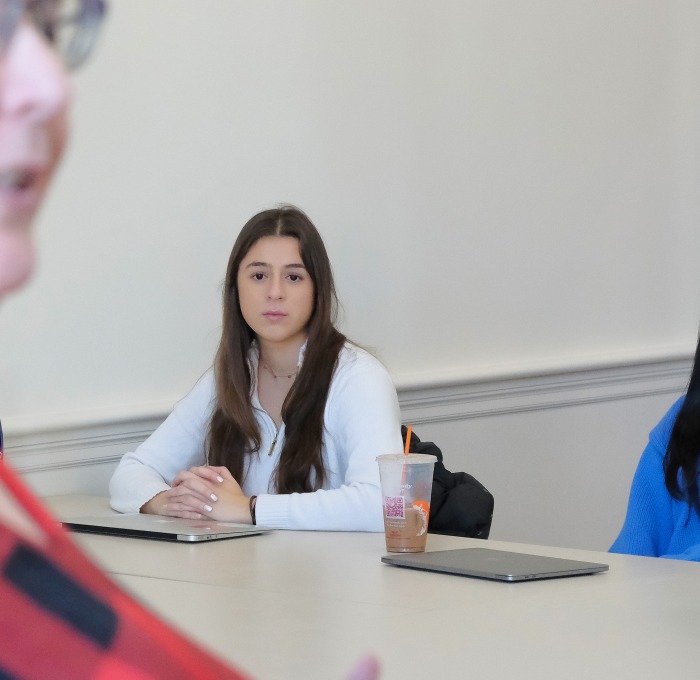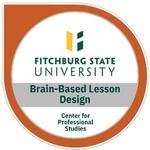
Course Description
“If you want to create an education environment that is directly opposed to what the brain is good at doing, you probably would design something like a classroom” (John Medina).
Recent developments in cognitive science confirm that traditionally structured classrooms impede optimal comprehension and retention of new learning. However, few educators have the time to keep pace with the ever-changing research… until now. This course culls the latest cognitive science to provide an overview of how the brain processes, stores, and retrieves information. Participants will learn how to deliver instruction and design learning experiences that are compatible with how the brain learns. Topics of study include information processing, classroom climate, primacy-recency effect, background and prior knowledge, retrieval and spaced practice, formative assessment, and Universal Design for Learning. Participants will leave this course with not only an understanding of learning science but also a myriad of practical strategies to use in the classroom. By the end of this course, teaching with the brain in mind will be a “no-brainer.”
This course contains content needed to fulfill the DESE Individual Professional Development plan requirement of at least 15 PDPs in a content area of training related to renewal of licensure. Fitchburg State University’s Center for Professional Studies is a DESE-approved PDP provider.
Earn a badge for completing this training. How does it work?
Upon completion of the course, the Center for Professional Studies will email you a link to the Fitchburg State badging site, Credly. You create an account and accept the digital badge. You can share the digital badge on LinkedIn, Facebook, your email signature, blog, website, resume, and online job search profile (Indeed, SchoolSpring, ZipRecruiter, etc..). The badge is yours to use and share but must be the one that officially is sent to you via your Credly account from Fitchburg State.
Audience: Any teacher, curriculum director, instructional course designer, or school administrator.
Mode: 100% online
Dates: TBD
- Two three-hour synchronous via Zoom meetings
- One hour and half synchronous via Zoom meeting
- Seven and half hours completed asynchronous
- Total Hours: 15
15 PDPs and Brain-Based Lesson Design Badge
Cost: $347
Course Number: PRDV 6211P CRN: 64103
1 Graduate Credit and Brain-Based Lesson Design Badge
Cost: $447
Course Number: PRDV 6211 CRN: 64104
Registration
*IMPORTANT*: The CRN and Course Number will be needed when you register so please make sure to write down this information. Follow the directions listed on the registration site.
Please Note:
- Once registered, you will receive a confirmation email with instructions on how to pay for your course. The registration may take 24-48 hours to process.
- You are required to pay within 48 hours of receiving your course payment email. Not paying for a course does not constitute a withdrawal from the course. You may withdraw prior to the start of a course. Once a course starts, you are not eligible for a refund.
Additional Information
Google doc for full details of the course outline.
As a result of the learning experiences in this course, participants will:
- Investigate and discuss the following cognitive science principles:
- Downtime
- Information processing
- Primacy-recency effect
- Background and prior knowledge
- Pictorial superiority effect
- Formative assessment
- Spaced, distributed and retrieval practice
- Experience Universal Design for Learning strategies
- Apply cognitive science principles to their lessons and evaluate their impact on learning
- Design a lesson synthesizing all cognitive science principles studied
Tracey Calo is the director of teaching and learning for Grafton Public Schools. Previously, she has served as an assistant superintendent, assistant principal, instructional coach, and English teacher. Tracey considers herself a teacher, regardless of her role. She designs professional development with the same vision that guided her classroom instruction: "What I can do with my teacher today, I can do by myself tomorrow." As a result, participants in her courses understand how to translate cognitive science research into effective strategies to use in the classroom.
Tracey has been offering professional development on a host of topics, including but not limited to cognitive science learning theory, male learners, curriculum and homework design, school culture, and leadership for close to 15 years. She presents for the Massachusetts Secondary Administrators Association as well as school districts across the state and finds great joy in coaching educators.

